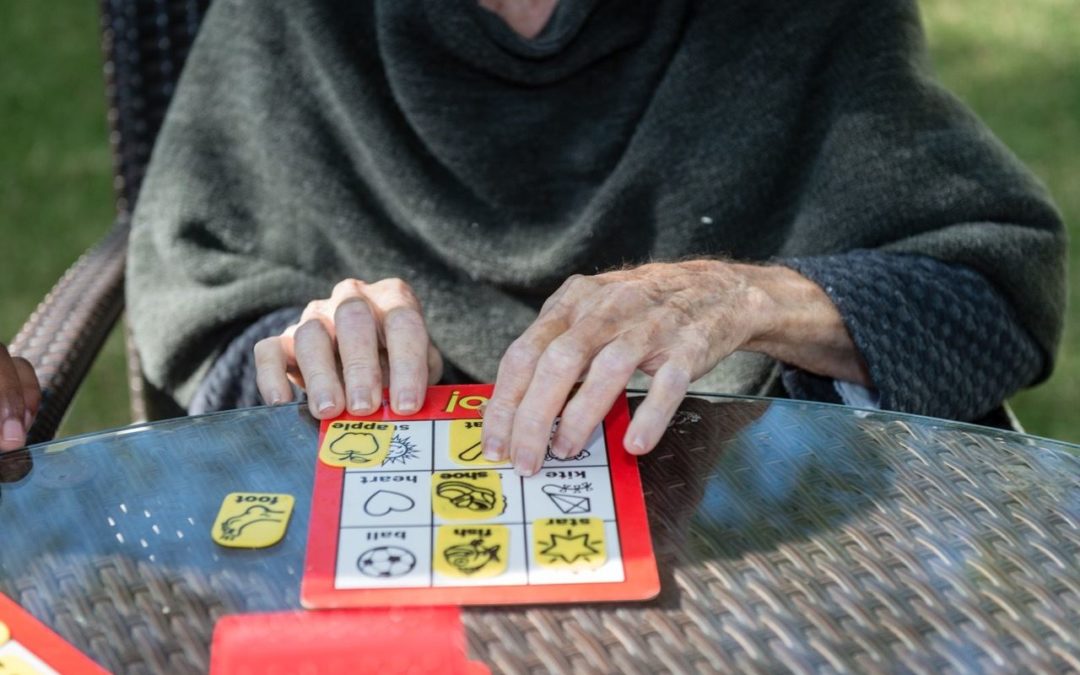Optimal quality of life requires healthy stimulation aligned to individual capacity
Physical and cognitive stimulation, social interaction and time for rest and relaxation are integral to anyone’s routine. Striking the right balance in maintaining activity levels while getting sufficient rest is however especially important for senior citizens’ healthy aging.
“The average person will experience changes in their energy levels during different life stages,” explains Corlia Schutte, an occupational therapist who works with mainly elderly people at Livewell Villages, a dementia care facility in Bryanston.
“While healthy children and younger adults usually have the capacity and endurance to be very active for most of the day, after the age of 65 many of us will start finding it difficult to sustain the tempo we could comfortably manage throughout the day when we were younger.”
Schutte and fellow occupational therapist Marike Coetzee, who is based at Livewell Villages in Somerset West, work with a team of carers and healthcare advisors to develop programmes of daily activities to help optimise the wellbeing and quality of life for people living with dementia.
“There are many factors that are taken into account when planning the activities for each resident, including their individual preferences, level of fitness and capabilities. While some older people are able to enjoy a vigorous pace of activity, it is more common for the elderly to require more rest in their daily routine as they advance in years,” Coetzee notes.
The Livewell teams get to know each resident to gain an understanding of their personal interests, their physical and cognitive abilities as well as their individual preferences, and then tailor the daily programmes to suit the individual.
“Dementia can affect a person’s mood and their capacity for enjoying a particular activity from one hour to the next, however, we therefore pay close attention to each individual throughout the day so that we can adapt their schedule accordingly. This intuitive level of care is so important for getting the most out of each day through optimising quality of life for a person living with dementia,” Schutte adds.
This intuitive level of care assists in achieving care that appropriately balances physical activity, cognitive stimulation, and rest on a continual basis for each Livewell resident. Physical activities help to maintain muscle strength, endurance, balance and physical fitness, which assist older people to remain as physically independent as possible. Cognitive stimulation and social interaction can help to preserve memory function while keeping the individual engaged and in touch with their surroundings.
“We provide a range of enjoyable yet beneficial activities as part of the daily programme at Livewell, and as far as possible we play to our residents’ respective strengths while offering the support required. Activities our residents enjoy include drumming, music appreciation, gardening, yoga, arts and crafts, to name a few,” Coetzee says.
There are also outings, tea parties, golf, woodwork and baking among other activities that are not only fun for residents, but also help to promote healthy aging.
“Rest is as important for the elderly as any type of activity. As our bodies age, we are no longer able to actively participate in activities for an unlimited time. In addition, the attention span of those living with dementia may also be impaired to some degree, meaning that they require more rest as part of their daily routine.”
Schutte says that regular rest periods help older individuals to feel more energised so that they can get the best out of the next activity they embark on.
“With our residents we notice that if they have not had sufficient rest, they are not able to engage to their full potential. Fatigue tends to exacerbate certain symptoms associated with dementia such as confusion and disorientation, and this is why rest is a vital element in our daily programmes at Livewell Villages,” she explains.
“Essentially, what we do at Livewell is to devote considerable attention to each individual we care for and do our utmost to provide them with the best possible quality of life,” Schutte concludes.
